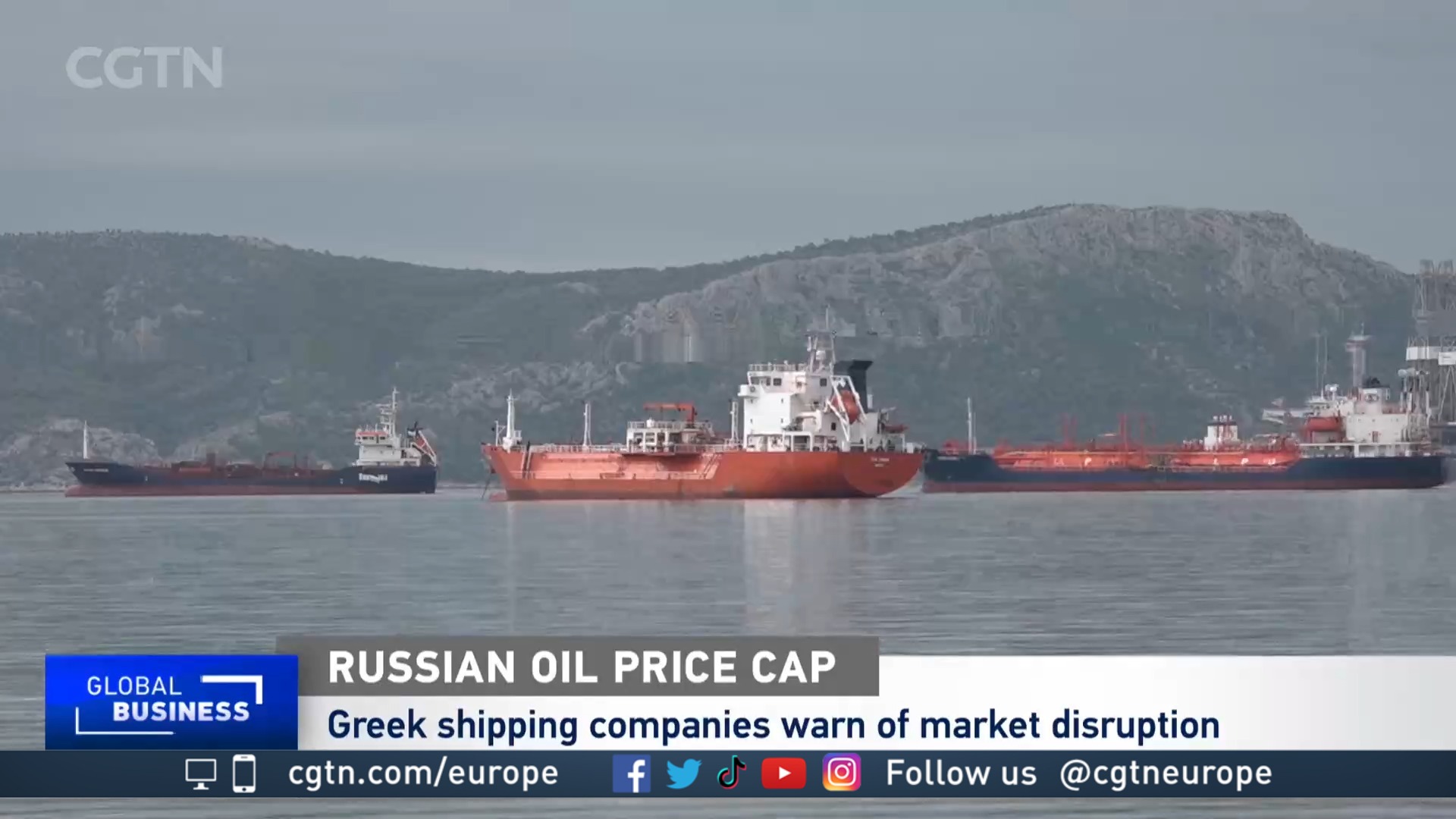
Greek shipping companies are warning the price cap will further disrupt global oil markets, and may hurt the EU shipping industry more than Russia. /CFP
Greek shipping companies are warning the price cap will further disrupt global oil markets, and may hurt the EU shipping industry more than Russia. /CFP
A price cap on Russian seaborne oil agreed upon by the European Union, the G7 and Australia has come into force. The cap of $60 per barrel, which went into effect on Monday, is aimed at limiting Russia's ability to finance the conflict in Ukraine.
However, Greek shipping companies that have been transporting Russian fossil fuels are warning that this latest round of sanctions could further disrupt global oil markets, as Russia produces 10 percent of world's output.
First there was a ban on natural gas. Then a partial ban on Russian oil. After that, a ban on providing insurance for tankers carrying Russian crude. And now there's the price cap.
Read more:
Spanish police raid Europe's drug 'super cartel'
The family with six generations of UK-China trading
China's forgotten heroes
"This price cap has three objectives," EU chief Ursula von der Leyen said shortly after the deal was finalized. "First, it strengthens the effect of our sanctions. Second, it will diminish Russia's revenues. And third, at the same time, it will stabilize global energy markets because it allows some Russian seaborne oil to be traded and transported by EU operators-to third countries – as long as it is sold below the cap."
The price ceiling on Russian crude was welcomed by most EU countries, with some even asking for stricter measures. However, Malta, Cyprus and Greece – three coastal EU nations that play a key role transporting Russian oil – have warned of the wider economic consequences of clamping down on an industry critical to international trade.
In fact, they believe this latest measure will hurt the EU shipping industry more than Russia.
"Any sort of intervention of the liberal flow of commodities affects the transporters," maritime economist George Xiradakis told CGTN Europe. "The Greek shipping companies and shipping companies in general are worried. This price cap will lead to a price war between other oil producing countries."
03:02

Tanker fleets in Greece have been legally transporting Russian fossil fuels since the conflict in Ukraine began in February. But many have voiced their concern that Greece has played a significant role in the distribution of its oil and is therefore helping to fund what Russia calls its military operation.
While many analysts believe that the latest cap might have a detrimental short term effect, Xiradakis says the future for the shipping industry still appears to be bright.
"Certainly the oil tanker market is at the moment enjoying a balance in supply and demand," he says. "That is what they have on their mind rather than what will happen with commodities and the price cap."
"The future of the market is seen with optimism, at least for the next few years," Xiradakis adds.
The latest decision on the oil price cap is meant to send a signal that many of the world's richest nations are united against Russia's actions in Ukraine.
But as winter kicks in, Greece, which has the world's largest tanker fleet, is perhaps less united than it appears on paper, as it is forced to seek alternatives to avoid the consequences of a further disrupted global supply chain.